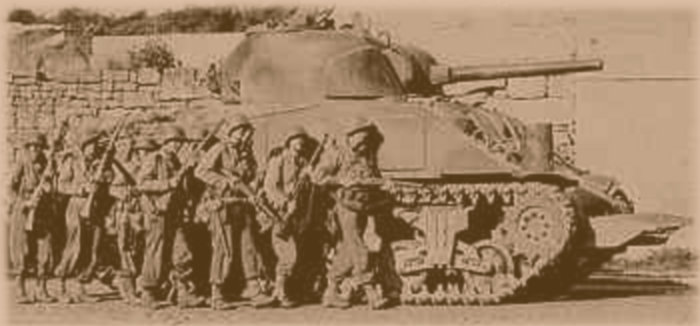Topic: British Army

Security
Canadian Army, Training Pamphlet No. 1
A General Instructional Background for the Young Soldier; 1942
Put in every-day language, Security consciousness is knowing how, what, when, and where to shut up—and what to shut up about. Good Security is acting continuously on this information.
Every soldier in the Canadian Army shares with his comrades a responsibility for Security which is with him at all times.
Without Security the best-planned operations can not be fully successful. Without Security consciousness no soldier is fully, trained. … And Security consciousness is a state of mind whidh you, as a responsible member of the Canadian Army, must yourself develop. Your officers and instructors can tell you why—even how—but developing this Security consciousness, this state of mind, depends upon yourself.
Military Security is merely the defence counter-measures which the Danadian Army employs to safeguard the men of the Army, to safeguard the information which these men necessarily possess and to safeguard the Army's stores, equipment and arms. It is your obligation to co-operate to the fullest in keeping from the enemy the information he wants and must have to wage war successfully against us. He spares neither time nor money to get this information and he works round the clock.
The enemy wants to learn everything he can about us and our plans for conducting the war. He is interested in the tiniest morsel of information he can glean. Even though it is of little importance in itself, it nevertheless represents a piece in the jigsaw puzzle on which he is constantly working. —Don't help him! There are many channels of leakage of these tiny, "harmless" bits of information. From the soldier's point of view, however, the most dangerous are:
1. Conversations in public places;
2. Conversations with friends and relatives through which information comes into the possession of those who, with the best will in the world, do not understand the importanceof safeguarding it;
3. Conversations over the telephone—for the telephone is not secret;
4. Correspondence home and with friends (see 2 above);
5. Correspondence with unknown persons—”Penpals,” business forms or advertisers;
6. Telegrams;
7. Photographs.
Remember—you help Hitler whenever you mention in letters or talk to civilians about any of the following subjects:
(a) Strength and Disposition of your own and other units.
(b) Location or description of defence positions.
(c) Armament or equipment.
(d) Rumours or forecasts of Movements.
(e) All matter relating to ships and ship movements, whether naval or mercantile marine, or to naval defenses such as submarine nets and booms.
Put in every-day language, Security consciousness is knowing how, what, when, and where to shut up—and what to shut up about. Good Security is acting continuously on this information. Breaches of Security are punishable under Military Law.

